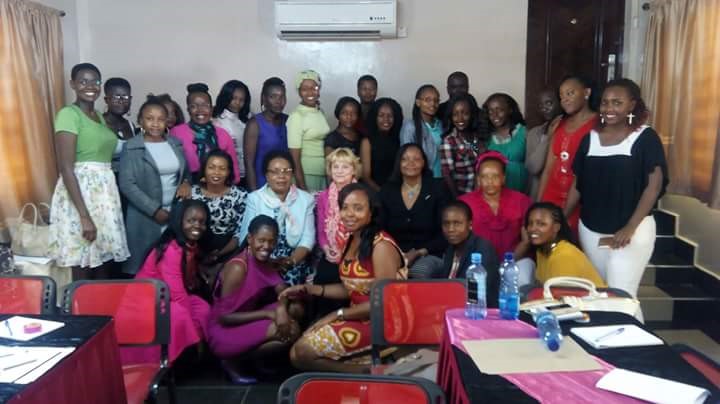Using the Power of Film to Empower Young Women and Girls in Kenya

Today, October 11, 2016, the world commemorates the fifth International Day of the Girl Child.
This year’s theme focuses on adolescent girls and the Sustainable Development Goals, with a specific focus on collecting and analyzing girl-focused, girl-relevant and gender-disaggregated data, and using this data to inform key policy and program decisions. Unfortunately, gender equality remains an unfulfilled promise in most parts of the world as millions of girls and women continue to struggle on the margins of society. This is true in Kenya where many girls and young women continue to be excluded from the decision-making table. While the 2010 Constitution of Kenya made important strides toward gender equality, there are still challenges that prevent the ideals of the constitution from becoming a reality.
Over the past several years, IRI has worked with dozens of local partners in Kenya to help change this narrative and elevate the status of women and girls through initiatives that promote gender equality and empower women to participate in democratic processes. Through its gender responsive budgeting and gender-focused civic education programs, IRI has empowered women from civil society to influence development policies at the local level while also strengthening the capacity of women government officials to perform their roles and responsibilities effectively.
In an effort to respond to the unique challenges facing young women in particular, IRI has partnered with Women and Girls Lead Global (WGLG) to implement a media-focused project targeting young women in Kenya. The project seeks to inspire young women through the use of powerful films to provoke thought, discussion and calls to action to address the barriers preventing girls and young women from reaching their full potential. As part of this effort, IRI and its global women’s initiative, the Women’s Democracy Network (WDN), partnered with the Kenya University Female Student Leaders Association (KUFSLA) to host six film screenings featuring real-life stories of empowered women throughout the world who overcome barriers to become successful entrepreneurs, politicians, community leaders and activists. The films served as a way to spark a conversation among women university students and leaders of student bodies about the challenges that many young women face in society. The screenings also provided a platform for the young women student leaders to network with their peers from both public and private universities as well as benefit from mentorship sessions with current women members of parliament.
The young women have since drawn from this experience to advocate for gender equality within university student bodies as well as to elevate their status as leaders in their communities. One of the project’s beneficiaries, Fatumzahra Hanni, a student leader from Moi University, was nominated as the junior senator for Marsabit County by the Youth Senate in Kenya as a result of her efforts to promote the political participation of young women. Inspired by the mentorship she received through the IRI program, Fatumzahra now serves as a mentor herself to girls in primary schools in Marsabit County. She is focused on inspiring girls and empowering them to overcome the cultural and societal barriers to women’s full political participation in her community. “This project has taught me that as a young woman, success has no barriers. Success doesn’t choose gender and young women need to realize that what we need to advance our status is to keep our priorities straight and our heads up,” notes Fatumzahra.
In celebration of the International Day of the Girl Child, IRI participated in WGLG’s social media campaign to launch a new film, Girl Connected. This film features the stories of five teenage girls from Kenya, Peru, Jordan, Bangladesh and India and their swim against the tide to tackle gender discrimination and violence in their communities. Jumping gracefully from country to country, the heartwarming Girl Connected tells their inspiring stories, including that of Michelle from Nairobi, Kenya. The film will also be televised today via Kenya’s national broadcaster, Kenya Broadcasting Cooperation. Through this social media campaign, IRI is sharing messages of inspiring girls and women from its work in Kenya and across the world. We invite you to follow the conversation through the hashtag #GirlConnected as well as through IRI’s social media pages.He
A large part of IRI’s program in Kenya focuses on empowering young women with the skills, knowledge and expertise to advocate for their inclusion within their universities, civil society organizations and other decision-making platforms including political parties, parliaments and county assemblies. It is through such efforts that the girl child and the young woman in Kenya will have her voice heard.
Top